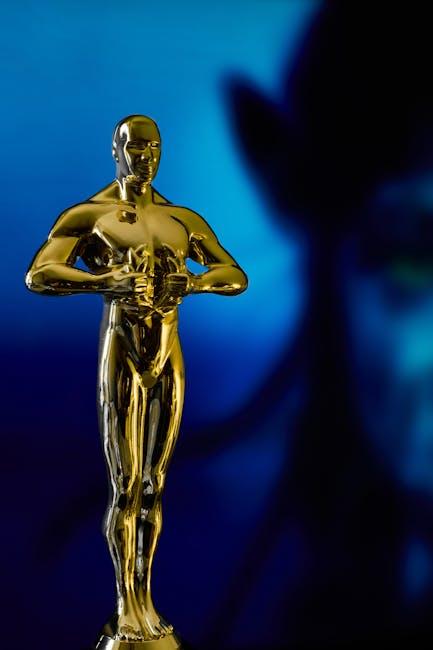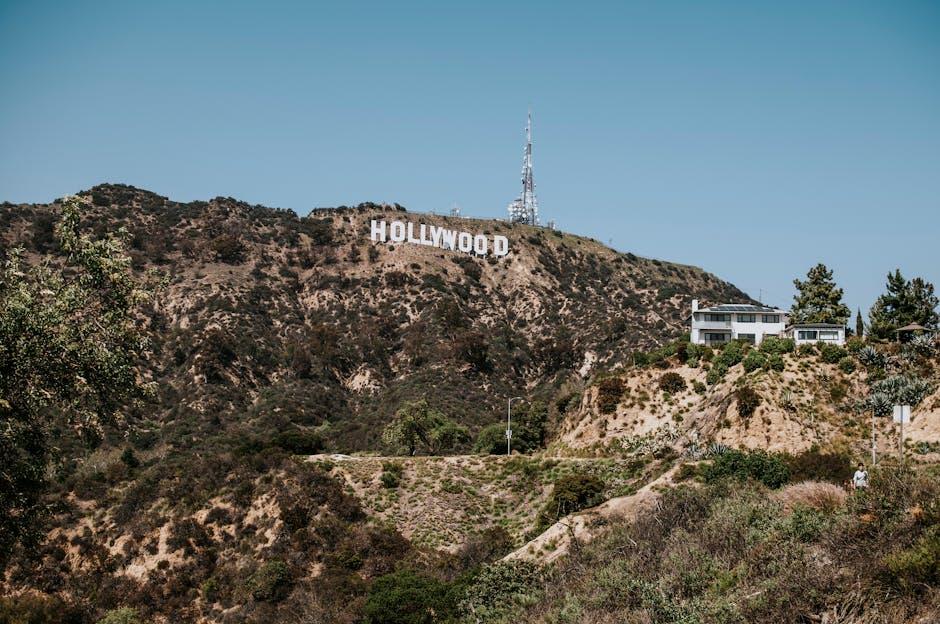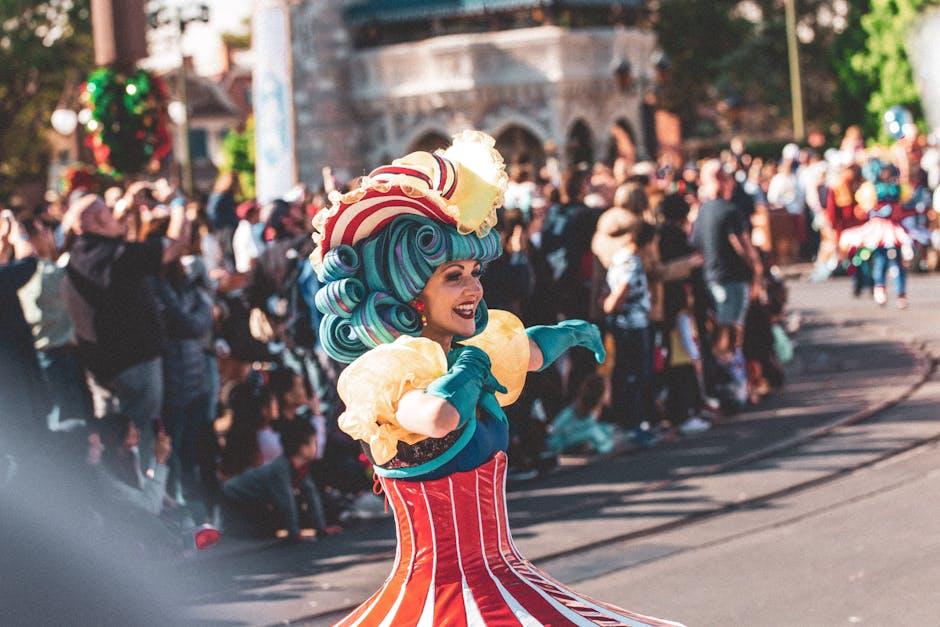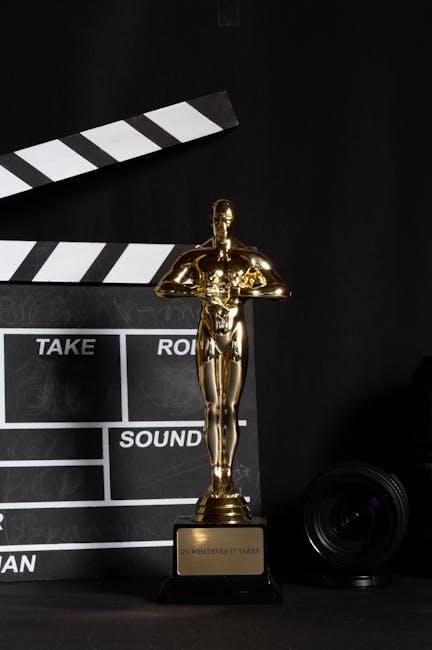In the glittering world of cinema, where every performance is dissected and every frame scrutinized, film criticism serves as both guide and judge. Yet beyond the printed page and star-studded review shows lies a lesser-seen dimension: the celebrities’ own responses to the spotlight of critique. How do actors, directors, and producers navigate the delicate dance between artistic expression and public appraisal? Exploring the landscape of celebrity reactions to film criticism reveals a fascinating interplay of vulnerability, defiance, and often unexpected insight—where the art of responding becomes as compelling as the art itself.
Table of Contents
- Celebrity Emotional Responses to Negative Reviews
- Analyzing Constructive Criticism Versus Personal Attacks
- The Role of Social Media in Shaping Celebrity Opinions
- Strategies Celebrities Use to Address Public Backlash
- Impact of Criticism on Career Choices and Artistic Growth
- Best Practices for Celebrities to Engage with Film Critics
- Q&A
- Closing Remarks

Celebrity Emotional Responses to Negative Reviews
When faced with critical reviews, celebrities often reveal a surprisingly human side behind their glamorous façades. While some stars choose to embrace negative feedback as a stepping stone for growth, others respond with visible frustration or even public rebuttals. This range of emotional reactions highlights the immense pressure that film criticism exerts—not just on their professional work but on their personal confidence and public image. Many understand that criticism is part of the industry, yet the intensity of their responses sometimes exposes the vulnerability beneath their star power.
Below are common emotional responses observed among celebrities after receiving unfavorable reviews:
- Reflection: Some use critiques as constructive lessons, showing a willingness to evolve their craft.
- Defensiveness: It’s not unusual to see stars contesting critics’ opinions, passionately defending their artistic choices.
- Silence: Choosing to ignore negative press entirely can be a method of maintaining composure and focus.
- Humor: Others cope by making light of their reviews, turning potential negativity into an opportunity to connect with fans.
| Emotion | Celebrity Example | Reaction |
|---|---|---|
| Reflection | Leonardo DiCaprio | Acknowledged flaws, used feedback to improve performances. |
| Defensiveness | Shia LaBeouf | Publicly argued with critics over creative choices. |
| Humor | Ryan Reynolds | Joked about bad reviews on social media, gaining fan support. |

Analyzing Constructive Criticism Versus Personal Attacks
Navigating the fine line between constructive criticism and personal attacks is an essential skill, especially in the realm of celebrity film feedback. Constructive criticism often offers valuable insights, focusing on aspects such as plot development, character depth, or cinematography, which can help artists grow. Celebrities who embrace this form of critique tend to demonstrate humility and a commitment to their craft, often engaging with reviewers to better understand audience perspectives. On the other hand, personal attacks stray into the realm of disrespect, targeting an actor’s or director’s identity rather than their work, and often provoke defensive or dismissive reactions.
The difference can be illustrated in this quick comparison:
| Constructive Criticism | Personal Attacks |
|---|---|
| Highlights specific storytelling weaknesses | Insults the actor’s appearance or personality |
| Suggests ways to enhance performance or direction | Uses derogatory language or name-calling |
| Focuses on the film’s content and execution | Questions personal character without relevance |
Celebrities who respond positively to constructive feedback often emerge with stronger fan connections and professional growth, while those confronted with personal attacks may struggle to maintain composure publicly. Understanding this distinction enriches our appreciation of how critics shape the dynamic between audiences and filmmakers.

The Role of Social Media in Shaping Celebrity Opinions
Social media platforms have transformed the landscape of celebrity opinion, offering stars a direct channel to express their thoughts on film criticism. Unlike traditional media, where responses could be filtered or delayed, platforms like Twitter and Instagram provide instantaneous interaction, allowing celebrities to engage with both fans and critics alike in real-time. This dynamic has led to an unprecedented transparency where viewers witness the emotional spectrum from humility and gratitude to frustration and disagreement. What makes this so compelling is the way social media fosters a sense of connection — it humanizes celebrities, portraying them not just as larger-than-life figures but as real people navigating public opinion.
The influence of social media on shaping these opinions can be broken down into several key elements:
- Amplification: A single tweet or post can reach millions instantly, magnifying the impact of a celebrity’s viewpoint.
- Community Influence: Fans often rally behind or challenge their idols, creating a feedback loop that molds ongoing perspectives.
- Personal Branding: Celebrities curate their digital persona, carefully balancing authenticity with professional reputation when addressing criticism.
| Social Media Aspect | Effect on Celebrity Opinions |
|---|---|
| Instant Response | Real-time emotional expression |
| Fan Interaction | Support and counterarguments shaping views |
| Public Accountability | Pressure to maintain image and diplomacy |

Strategies Celebrities Use to Address Public Backlash
When faced with public backlash, many celebrities opt for strategic silence, allowing the controversy to subside before addressing it. This approach helps avoid escalating negative attention and preserves their reputation over time. In contrast, some celebrities take a more direct route by issuing carefully crafted statements on social media, expressing understanding while clarifying misconceptions. This balance of empathy and assertiveness can win public favor and demonstrate maturity in handling criticism.
Others choose a proactive stance, engaging with critics through interviews or appearances, turning backlash into an opportunity to discuss their artistic vision or personal growth. Common tactics include:
- Highlighting positive feedback to create a counterbalance and showcase support.
- Using humor or self-deprecation to diffuse tension and humanize themselves.
- Releasing behind-the-scenes content to provide context and deepen audience connection.

Impact of Criticism on Career Choices and Artistic Growth
Criticism often serves as a pivotal force shaping the trajectory of a celebrity’s career. For some, negative reviews become catalysts for transformation, inspiring them to explore new genres or collaborate with visionary directors. Others may retreat temporarily, reassessing their choices and honing their craft away from the public eye. Resilience in the face of critique is a common trait, enabling artists to refine their skills and push boundaries beyond initial setbacks. This process frequently results in an enriched filmography that reflects both growth and adaptability.
Artistic evolution prompted by critique also creates a dynamic dialogue between the celebrity and their audience. Critics’ perspectives can highlight possibilities previously unconsidered, encouraging stars to experiment with roles or storytelling techniques. Some strategies celebrities adopt include:
- Seeking mentorship or coaching to improve performance
- Engaging with fans to understand their expectations without losing artistic integrity
- Choosing projects with stronger scripts or directors to ensure better reception
| Reaction Type | Career Impact | Artistic Growth |
|---|---|---|
| Constructive Adaptation | Role diversification | Skill refinement |
| Defensive Response | Temporary withdrawal | Reflective learning |
| Public Disengagement | Shift to independent films | Creative exploration |

Best Practices for Celebrities to Engage with Film Critics
When navigating the complex world of film criticism, celebrities can generate genuine goodwill by adopting a thoughtful and measured approach. Respecting critics’ perspectives—even when they differ from personal views—can foster a more constructive dialogue. Embracing criticism as an opportunity for growth rather than a personal attack elevates an artist’s public image. Celebrities who engage with critiques transparently and with humility often find themselves building a loyal audience that appreciates authenticity over defensiveness.
In addition, understanding when and how to respond is crucial. Quick, impulsive reactions tend to amplify negativity, whereas carefully considered responses can neutralize tension and even convert skeptics. Here are some strategic actions celebrities can consider:
- Thank critics for their time and insights, acknowledging their role in the industry.
- Address facts when misrepresentations arise while avoiding personal attacks.
- Share behind-the-scenes stories to provide context without seeming defensive.
- Use humor delicately to diffuse harsh commentary.
- Choose silence wisely; sometimes no response speaks volumes more than any statement.
| Approach | Outcome |
|---|---|
| Engaging respectfully | Builds trust & credibility |
| Overreacting impulsively | Invites negative backlash |
| Responding with humor | Humanizes celebrity image |
| Ignoring criticism | Maintains focus on craft |
Q&A
Q&A: Celebrity Reactions to Film Criticism
Q1: Why do celebrities often have strong reactions to film criticism?
A1: Celebrities pour months—sometimes years—into bringing a film to life. Criticism, especially when harsh, can feel deeply personal. It’s not just about the movie; it’s about their artistry, vulnerability, and public image. Hence, their reactions can range from thoughtful reflection to defensive rebuttals.
Q2: How do some actors handle negative reviews with grace?
A2: Many actors view criticism as part of the creative journey. They see it as a feedback loop that can foster growth. Instead of reacting emotionally, they may express gratitude for the dialogue, acknowledging that differing opinions are inevitable in art.
Q3: Are there examples of celebrities who openly criticized critics back?
A3: Absolutely. Some celebrities have sparred publicly with critics, sometimes through pointed social media posts or interviews. These moments often spark lively debates about the nature of criticism and the responsibilities of both creators and reviewers.
Q4: Can film criticism impact an actor’s future roles or career choices?
A4: Yes, reviews can influence casting decisions and an actor’s confidence in selecting projects. Positive critiques might open doors, while negative ones can prompt actors to reassess their choices, seek new challenges, or refine their craft.
Q5: How do filmmakers themselves respond compared to actors?
A5: Directors and producers sometimes take a broader view, focusing on the overall reception of their vision rather than individual performances. Their responses can be more strategic, balancing artistic pride with understanding market dynamics influenced by reviews.
Q6: Has the rise of social media changed the way celebrities react to criticism?
A6: Undoubtedly. Social media offers an immediate and unfiltered platform for celebrities to engage with critics and fans alike. This accessibility can amplify both support and backlash, making celebrity reactions more visible and, at times, more spontaneous.
Q7: What can audiences learn from celebrity reactions to film criticism?
A7: Observing how celebrities handle criticism provides insight into the human side of artistry—reminding us that behind every role is a person vulnerable to judgment. It encourages empathy and a more nuanced appreciation of the complex relationship between creators and their audience.
Closing Remarks
In the ever-evolving dance between art and audience, celebrity reactions to film criticism reveal as much about the human spirit as the movies themselves. Whether met with grace, humor, or defiance, these responses remind us that behind the silver screen are real people, navigating passion and perception in equal measure. As the credits roll on each review, what remains is a shared story—one where the critics’ words and the stars’ voices continue to shape the vibrant landscape of cinema.

